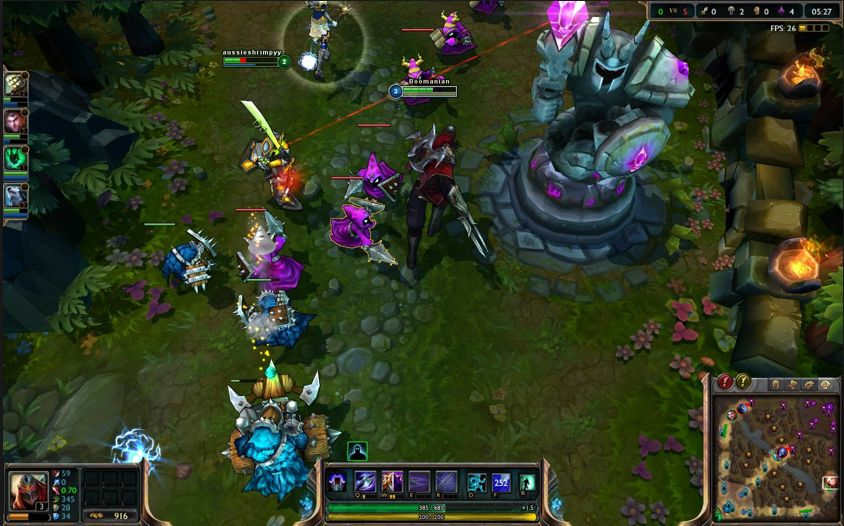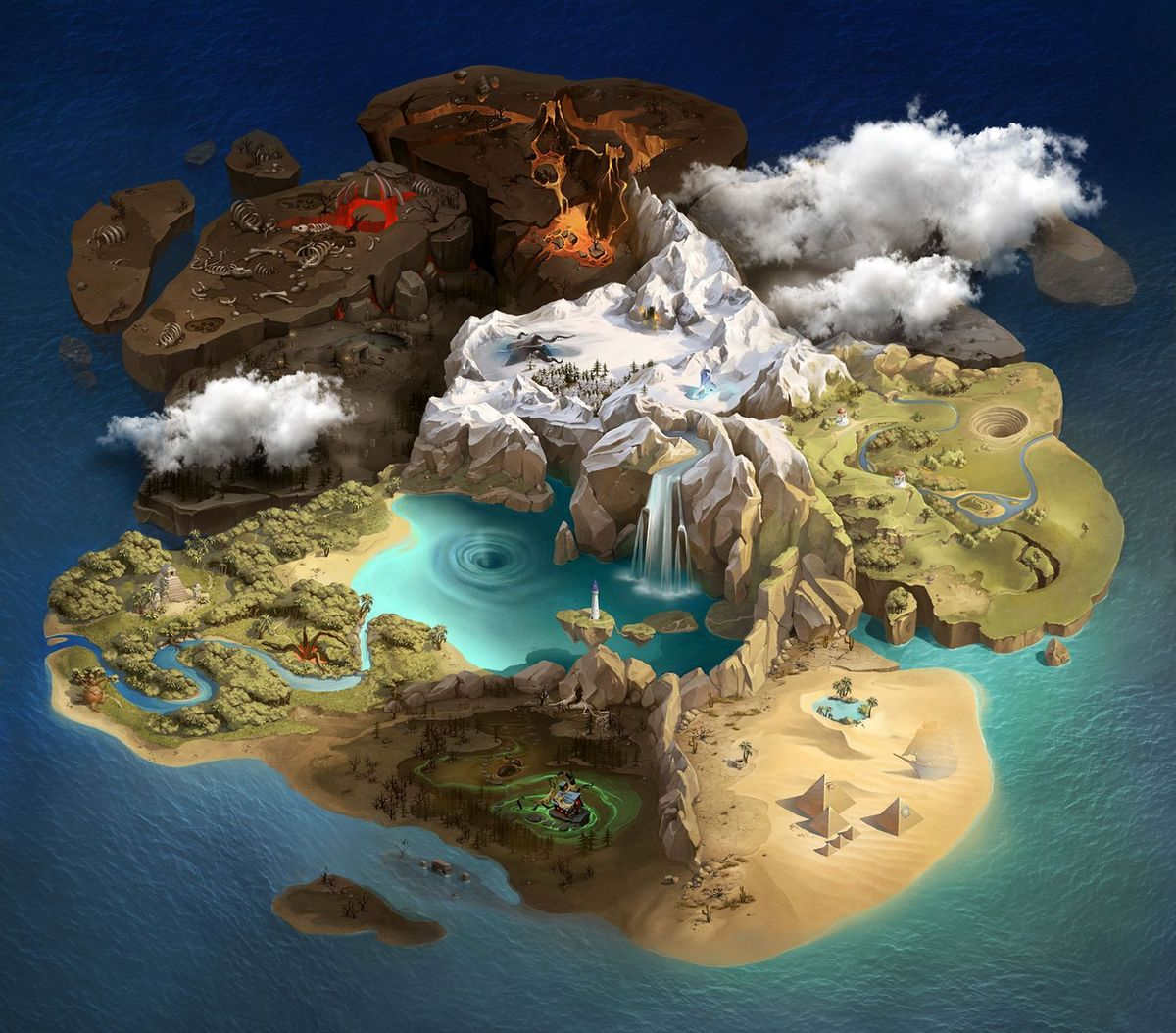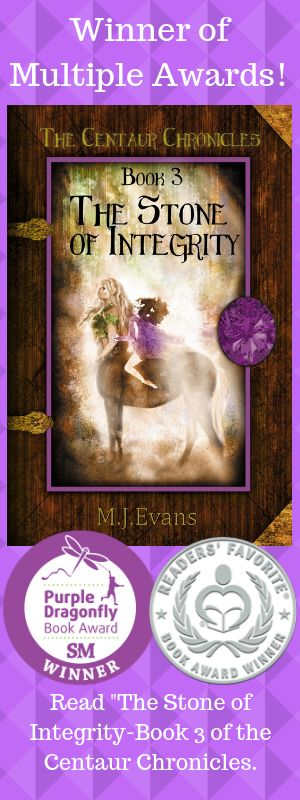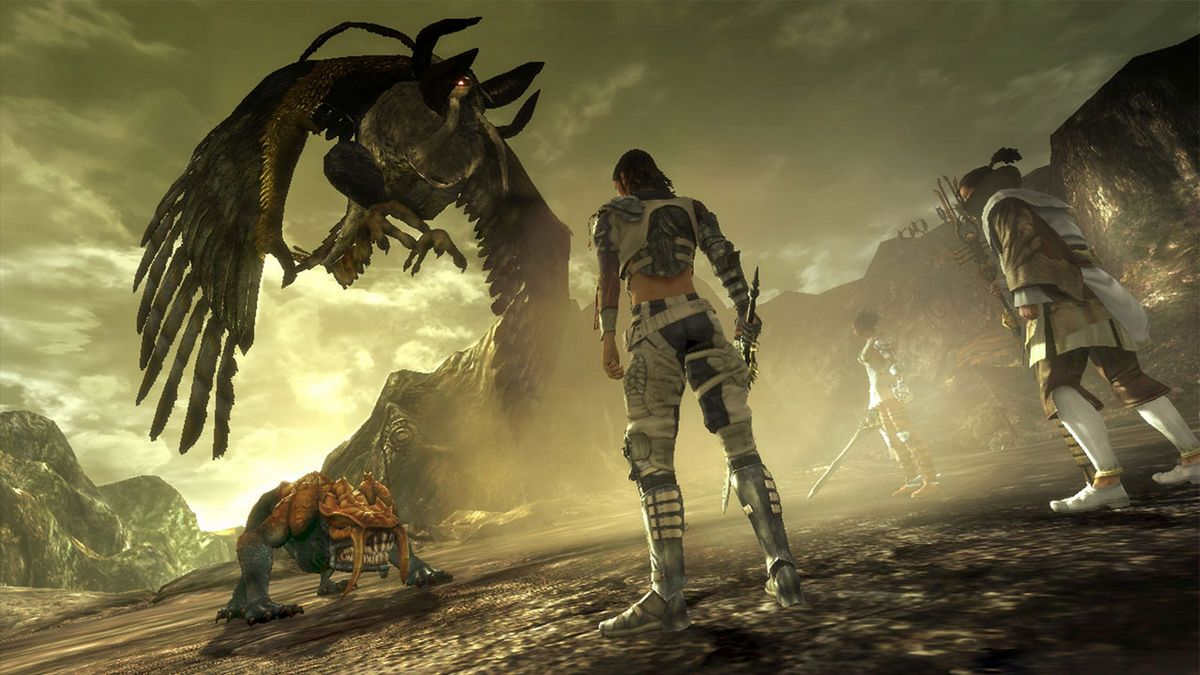Lost Odyssey is a captivating and intricate game that has garnered a significant following among gamers. Developed by Mistwalker, with the help of Hironobu Sakaguchi, creator of the Final Fantasy series, Lost Odyssey offers players an immersive experience with its complex storyline and dynamic characters.
Set in a world where magic exists alongside technology, Lost Odyssey follows the story of Kaim Argonar, an immortal who wanders this fantastical landscape in search of his memories. Along the way, he meets a diverse cast of characters who join him on his quest to unravel his past.
Lost Odyssey offers players a vast world to explore rich with lore and history. The game features traditional turn-based combat combined with unique gameplay mechanics such as memory sequences that allow players to gain insight into Kaim’s past experiences.
As one delves deeper into the game’s narrative, they are met with themes of love, loss, identity and redemption- all woven together through brilliantly written dialogue and exceptional voice acting performances. Additionally, stunning visuals and memorable musical scores add another layer to this already masterful creation.
In conclusion, Lost Odyssey stands out amongst other role-playing games for its engaging narrative structure coupled with intuitive gameplay mechanics. It remains an excellent example of how storytelling can elevate video games from mere entertainment into profound works of art worthy of appreciation for their depth and complexity.
- A deep dive into the narrative structure of Lost Odyssey: exploring its themes, motifs, and character arcs
- Understanding the gameplay mechanics of Lost Odyssey: examining how it blends traditional RPG elements with unique features such as “immortals” and skill linking
- Exploring the music and sound design in Lost Odyssey: analyzing how composer Nobuo Uematsu creates an immersive audio experience that complements the game’s story and atmosphere
- Evaluating the critical reception of Lost Odyssey since its release in 2007: considering both positive reviews from fans and critics, as well as potential criticisms or areas for improvement
- Comparing Lost Odyssey to other classic RPGs from the same era (such as Final Fantasy XII or Tales of Vesperia): discussing similarities/differences in terms of storytelling, gameplay mechanics, world-building, etc
- Analyzing why some players might have missed out on playing Lost Odyssey during its original Xbox 360 release – was it due to a lack of marketing? Limited console availability? Other factors?
- Discussing whether or not there is potential for future installments or adaptations of Lost Odyssey – either through remakes/remasters or through new entries in the series altogether
- Examining how fan communities have responded to Lost Odyssey over time – including online forums/discussion groups dedicated to analyzing various aspects of the game (e.g., lore speculation) or creating fan art/fiction inspired by its world/characters/etc
A deep dive into the narrative structure of Lost Odyssey: exploring its themes, motifs, and character arcs
The game’s story weaves together multiple character arcs as they navigate through a world riddled with political intrigue and war. At its core are the experiences of the protagonist Kaim Argonar, whose immortality forces him to grapple with his own memories while witnessing those around him age and pass on.
The narrative structure of Lost Odyssey employs several motifs that contribute to its overarching themes. One such motif is the use of dreams as a means for characters to experience visions from their past lives or possible futures. This device serves not only to enhance character development but also provides insight into the game’s central message: life is fleeting; embrace every moment.
Character arcs in Lost Odyssey are complex and nuanced. Each individual has their own unique backstory that contributes towards their motivations throughout the plot; each arc builds upon each other until all reach a satisfying conclusion at the endgame climax. The intricacy with which these arcs intertwine helps create a richly layered tapestry out of this epic tale.
In conclusion, Lost Odyssey is an exceptional example of how games can explore complex narratives using non-linear storytelling methods effectively. By utilizing motifs like dreams alongside multi-layered character arcs woven together by robust thematic threads, it creates memorable moments that will stick with players long after they have put down their controllers.
Understanding the gameplay mechanics of Lost Odyssey: examining how it blends traditional RPG elements with unique features such as “immortals” and skill linking
The gameplay mechanics in Lost Odyssey revolve around turn-based combat, where players take turns to attack and defend against enemies using a variety of weapons, spells, and abilities. What sets Lost Odyssey apart from other RPGs is the presence of “immortals,” which are special characters that cannot die but can only be defeated temporarily.
Another innovative feature in Lost Odyssey’s gameplay mechanics is skill linking. This allows players to combine skills between different party members to create devastating combos during battles. For instance, if one character learns a fire spell while another has an ability that increases damage dealt by fire attacks, then combining these two abilities yields powerful results.
Furthermore, Lost Odyssey has an extensive leveling system where players earn experience points (XP) for defeating enemies or completing quests. Once enough XP have been earned, characters level up and gain new skills or abilities that allow them to become more potent in battle. Overall, understanding the gameplay mechanics of Lost Odyssey requires patience and strategic thinking; however, once mastered it offers a rewarding experience for fans of traditional RPGs looking for something fresh and exciting.
Exploring the music and sound design in Lost Odyssey: analyzing how composer Nobuo Uematsu creates an immersive audio experience that complements the game’s story and atmosphere
The immersive audio experience in Lost Odyssey is an integral part of the game’s overall success. Uematsu carefully crafted a musical score that blends seamlessly with the game’s story and atmosphere to transport players into its world.

The music in Lost Odyssey ranges from melancholic piano pieces to epic orchestral tracks, evoking strong emotions throughout gameplay. Additionally, Uematsu employs subtle sound design techniques such as environmental sound effects that bring life to each location in the game. For instance, when exploring forests or caves, one can hear birds chirping or water drips echoing off cave walls – these details add depth and realism to the environment.
Uematsu also uses leitmotifs – recurring musical themes associated with specific characters or situations – which create emotional connections between players and their experiences within the game. One example of this occurs during moments of sadness when Kaim Argonar (the main protagonist) reflects on past memories through dream sequences accompanied by a poignant piano melody.
In conclusion, Nobuo Uematsu has successfully created an unforgettable audio experience that complements Lost Odyssey’s narrative and enhances its atmosphere. From emotive melodies and atmospheric background noises to character-specific leitmotifs, every aspect of his composition adds depth to this captivating RPG adventure.
Evaluating the critical reception of Lost Odyssey since its release in 2007: considering both positive reviews from fans and critics, as well as potential criticisms or areas for improvement
Positive reviews often praise the game’s rich storytelling and character development, as well as its beautiful graphics and engaging combat system. However, some potential criticisms of the game include its slow pacing early on, repetitive dungeon designs, and dated gameplay mechanics.
One aspect that is universally praised about Lost Odyssey is its deep and emotional narrative. The game tells the story of immortal protagonist Kaim Argonar who has lived for over 1,000 years but cannot remember his past. Players journey alongside Kaim as he seeks to regain his memories while also unlocking those of others through dream sequences known as “A Thousand Years of Dreams.” These vignettes serve not only to flesh out characters but provide impactful standalone stories that are often emotionally charged.
While Lost Odyssey’s narrative may be a highlight for many players, some may find issue with other aspects of the game such as its slow start or repetitive dungeon design. Early on in the game can feel like a slog due to an abundance of tutorials layered atop dialogue-heavy cutscenes before reaching any real action. Similarly, dungeons tend towards recycling assets across various locations leading to déjà vu moments when playing through them multiple times.
Overall though, despite these potential criticisms Lost Odyssey remains a standout title within the genre thanks to its strong world-building elements and memorable cast members.
Comparing Lost Odyssey to other classic RPGs from the same era (such as Final Fantasy XII or Tales of Vesperia): discussing similarities/differences in terms of storytelling, gameplay mechanics, world-building, etc
The storytelling in these games differs significantly; while Lost Odyssey presents a more character-driven narrative that focuses heavily on emotions and relationships, Final Fantasy XII has a greater emphasis on politics and world-building. Meanwhile, Tales of Vesperia leans towards humor and lightheartedness.
In terms of gameplay mechanics, all three titles have unique features that separate them from each other. Lost Odyssey includes an innovative ring system that involves timing-based button presses during battles for critical damage or healing effects. On the other hand, Final Fantasy XII introduced the gambit system wherein players can program their party members’ actions based on certain conditions like HP levels or enemy types. Lastly, Tales of Vesperia’s combat relies heavily on chaining combos with its fluid action-oriented battle system.

Regarding world-building, Lost Odyssey stands out again by incorporating dream sequences into its story where one learns about Kaim’s past as an immortal being who has lived for over a thousand years. It adds depth to the game’s lore which was mostly absent from both Final Fantasy XII and Tales of Vesperia. Notably though in terms of graphics design language FFXII deviates greatly from LOST ODYSSEY’s traditional fantasy setting into something resembling science fiction.
Overall comparing these aforementioned games highlight what sets them apart – be it exclusive gameplay mechanics (ring system), distinct art styles (sci-fi), or different approaches to storytelling – despite sharing similarities within the JRPG genre conventions they belong to.
Analyzing why some players might have missed out on playing Lost Odyssey during its original Xbox 360 release – was it due to a lack of marketing? Limited console availability? Other factors?
However, despite the critical acclaim it received upon release, sales figures were tepid at best. As an AI language model expert on video games industry trends and player behaviors let’s analyze why some players might have missed out playing Lost Odyssey during its original Xbox 360 release.
One of the primary reasons that contributed to lower than expected sales was undoubtedly due to limited console availability. The game was exclusively available on Microsoft’s Xbox 360 platform which wasn’t as popular as Sony’s PlayStation back then. Additionally, the high price point of both consoles meant that many gamers may not have been able to afford them leading up to or during launch period.
Marketing could also be another factor contributing towards this lackluster performance; while critically acclaimed publications gave positive reviews early in Lost Odyssey’s lifecycle and word-of-mouth sprouted slowly via forums messages boards but there had been no significant marketing push from Microsoft themselves which often is attributed to low visibility among wider audiences.
Finally worth mentioning are other factors such as timing – Lost Odyssey’s release coincided with several major titles like Call of Duty: World at War (CoD) & Grand Theft Auto IV (GTA). These two blockbuster franchises attracted most gaming consumers’ attention away from new entrants like Lost Odyssey into the market space.It is clear that these various factors played their respective roles in impacting initial success rates of Lost Odyssey back then though now has since become well regarded by gamers worldwide who discovered it later through remasters or digital archives such as Game Pass.
Discussing whether or not there is potential for future installments or adaptations of Lost Odyssey – either through remakes/remasters or through new entries in the series altogether
Developed by Mistwalker and published by Microsoft Game Studios, it received critical acclaim for its engaging storyline, beautiful graphics, and memorable characters. The RPG genre has always been popular with gamers worldwide and Lost Odyssey’s success helped cement its place as one of the most beloved games in this category.
Considering the game’s popularity among fans worldwide, there is ample potential for future installments or adaptations of Lost Odyssey through both remakes/remasters or new entries altogether. With advancements in technology over the past few years, it would be exciting to see what kind of improvements could be made to enhance gameplay mechanics while still retaining the original spirit of the game. It also provides an opportunity to introduce new audiences to a classic title that might not have been accessible on older consoles.
Moreover, considering how successful re-releases like Final Fantasy VII Remake have become recently; developers can consider similar routes for Lost Odyssey too – allowing players who missed out on playing this gem during their initial run on Xbox 360 access via modern platforms such as PS4/5 or PC gaming.
In conclusion, with continued love from its fandom base even after all these years since release – chances are high that we will eventually see more content coming from Lost Oddysey universe whether in form of sequels/prequels/remastered editions at some point down the line!
Examining how fan communities have responded to Lost Odyssey over time – including online forums/discussion groups dedicated to analyzing various aspects of the game (e.g., lore speculation) or creating fan art/fiction inspired by its world/characters/etc
Online forums and discussion groups dedicated to Lost Odyssey have flourished since its release, with fans eagerly delving into every detail of the game’s intricate lore and characters.
One popular aspect of Lost Odyssey that has generated significant interest among fans is its extensive world-building. The game features a richly detailed universe with complex political systems, unique cultures, and multiple races. Fans have created elaborate theories about these elements, often engaging in passionate debates over their interpretation of events within the game.

In addition to analysis and debate, fan communities surrounding Lost Odyssey have also produced an abundance of fan art inspired by the game’s beautiful visuals and memorable characters. Many talented artists within these communities use their skills to create stunning pieces featuring everything from character portraits to breathtaking landscapes from within the game.
Overall, it’s clear that Lost Odyssey has cultivated a devoted fan following through its exceptional storytelling, intricate world-building, and unforgettable cast of characters. The passion exhibited by these fans serves as a testament to just how impactful this title has been on gaming culture as whole for years after it first hit shelves back in 2007.
In conclusion, Lost Odyssey is an exceptional game that offers a truly immersive and engaging gaming experience. The game’s storytelling is its most remarkable aspect as it takes players on a thrilling journey through the eyes of Kaim Argonar, a man who has lived for over 1000 years. Moreover, the game features superb graphics, stunning music compositions, and top-notch voice acting which adds to the overall immersion factor.
The gameplay mechanics are also quite impressive with turn-based battles that require strategic thinking and careful planning. Players will need to make use of their party’s skills and abilities while managing resources such as magic points effectively.
While there are some flaws in the game such as occasional pacing issues and repetitive dungeon designs, they do not detract from the overall enjoyment derived from playing this masterpiece.

Overall, if you are looking for an epic RPG adventure filled with rich characters, captivating storylines, challenging battles, beautiful visuals & sound effects then Lost Odyssey should definitely be on your list of must-play games. It is an excellent example of why JRPGs remain one of gaming’s most popular genres even after so many years since their inception.
Read More:- Dive into the Adventure of Etrian Odyssey III: The Drowned City – Explore a Lost World!.
- Explore the Millennia-old mysteries in Etrian Odyssey Untold: The Millennium Girl – A Captivating RPG Adventure! (97 characters).
- Experience Epic Music and Gameplay with Theatrhythm Final Fantasy: Curtain Call – A Review.
- Get ready to explore new heights with Etrian Odyssey II: Heroes of Lagaard (67 characters).
- Experience the Epic Adventure of Final Fantasy IX: A Classic Game with Timeless Appeal! (69 characters).
- Discover the Magic of Final Fantasy V Advance: A Must-Play Game for RPG Fans.
- Experience Epic Adventure with Final Fantasy IV: The Ultimate Game of Strategy and Magic!.